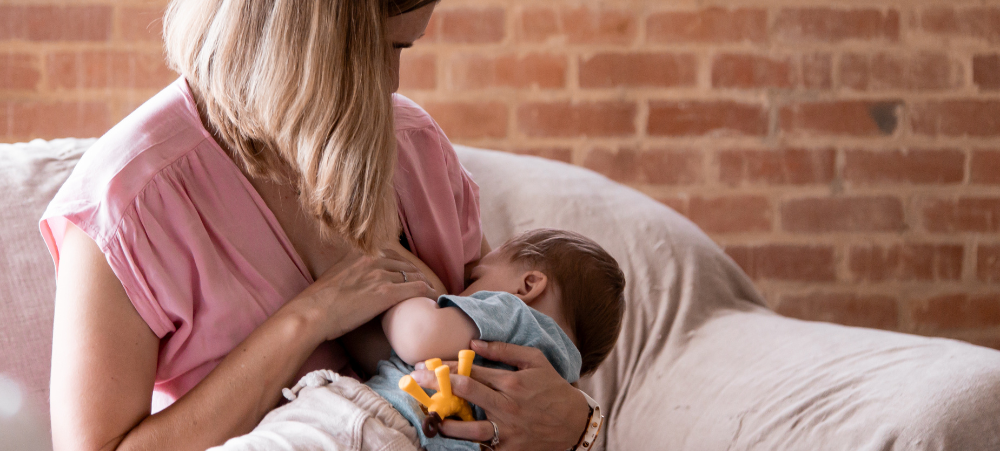If you have decided to breastfeed, it is a great way to give your baby the exact nutrients they need. But it’s not always easy. Here are a few tips and tricks that may help transition you into this new way of life.
Breastfeeding stations
Being comfortable is a big part of successful breastfeeding. And being stuck in the same room every time you feed may do damage to your mental health. Try making breastfeeding stations around the house so you can join your family in experiencing life at home. Make sure you have a comfortable chair, a little table, a water bottle, wipes, burp cloths, and nipple cream available to you.
Include your partner
If you find that you need help, or your partner wants to be more a part of the feeding experience than they are, get them to position baby, help burp, change and dress them. These can be bonding experiences themselves.
Check if baby is getting enough milk
Have a peak in their nappy. By day 5 they should have 6 or more wet nappies every 24 hours. You should also see about 3 to 4 stools a day by day 4. The colour of these stools should be transitioning from the dark, thick meconium poops right after birth to what is usually a yellow, seedy poop. Also make sure that they are back to their birth weight by no later than 14 days birth. After that, you’ll want to see them steadily putting on weight.
Hold your baby skin-to-skin
Holding your baby skin-to-skin will help your body to start making milk and will wake up your baby’s feeding reflexes. This means that your baby will start looking for your breast sooner and your body will make more milk.
Know the signs of a hungry baby:
Besides crying, your baby may start rooting, licking their lips and putting their hands to their mouths.Babies need to eat often in the first few weeks: at least 8 or more times in 24 hours. This will help you to make more milk and will help your baby to gain back any weight they lose in their first few days. Some babies prefer many short feeds while others like fewer, longer feeds. Do not rush your baby – take your time.
Keep up the night feeds
Even though they are tough, know that these are important. Your body produces more prolactin (the hormone that promotes milk production) when you breastfeed at night, so night feedings help to keep up milk production. Also, mothers vary in the amount of milk they can store in their breasts, so for many women night feedings are essential to meeting their babies’ needs.
What to wear
PJs that open down the front (rather than one you have to pull up or down) will give your baby easier access, while keeping you warm during the night. This applies for day wear as well, try wearing breastfeeding tops (that can be easily pulled down) or button up ones.
- Top ways to balance work and parenting - November 21, 2025
- Kangaroo care and its benefits - November 20, 2025
- Top 5 ways to encourage your toddler to speak - November 20, 2025





